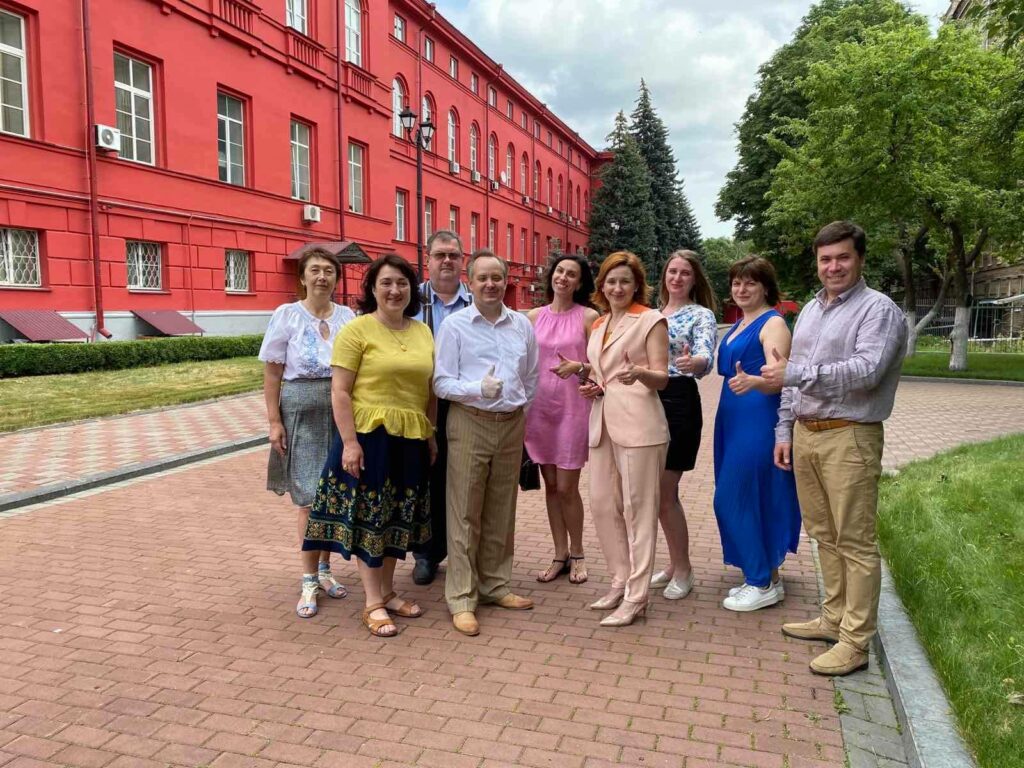In 2020, a new structural unit was formed on the basis of the Taras Shevchenko Kyiv National University – “Interdisciplinary Analytical Center for Socio-Economic Welfare and Mental Health.” Until then, the research teams of the University, which studied similar problems, acted separately and did not agree on the research goals and methodology. Hanna Tolstanova, the Vice-Rector for Research at Shevchenko University, the initiator of the Center’s formation, decided to change the situation. The need for interdisciplinary cooperation was financially supported by the International Renaissance Foundation, the Open Society Initiative for Europe (OSIFE) and the Swedish Embassy in Ukraine. Volodymyr VIRCHENKO, Head of the Center, Doctor of Economics at the Taras Shevchenko Kyiv National University, spoke about the socially significant problems of society that the scientists study, and research related to the Covid-19 pandemic as well:
– Mr. Virchenko, why is interdisciplinarity so important in the context of modern scientific research?
– Interdisciplinarity has a practical necessity. In modern conditions, it allows to achieve a synergy effect and gain additional competitive advantages when attracting grant funding. In addition, the combined efforts of scientists from different scientific areas help to gain consolidated knowledge and achieve the goal faster. Moreover, interdisciplinarity helps to find international partners to conduct joint research, because such research groups are promising and effective.
– Specialists in which areas does the Center unite?
– First of all, it was created in order to deepen interdisciplinary research between scientists from the Institute of Psychiatry, the Faculty of Economics and the Institute of Law of our University. Therefore, the staff of the Center are highly qualified specialists in the field of psychiatry, economics, biology, law and geography. Hanna Tolstanova and Olga Bilyavska, Vice-rector for Scientific and Pedagogic Work at the University, are also involved in the expert-analytical activity.
A group of specialists from the Institute of Psychiatry, headed by Iryna Pinchuk, MD, studies the mental health of the population. PhD in Economics Alina Magomedova and I work directly on the analysis of socio-economic and psychological aspects of human capital development. The group of young analysts headed by Iryna Sakharuk, PhD in Law, is involved in substantiating the legal basis of state policy in the field of social and economic well-being of society.

We cooperate with public authorities, public organizations, as well as foreign partners. The Center’s specialists are involved in conducting field research and collecting initial data.
– What research were implemented in such a short time?
– Our largest study is “Emotional state and stressors of health workers during the Covid-19 pandemic”. In total, two inquiry rounds were conducted. More than 1,700 respondents took part in the first round (spring 2020), and more than 1,200 respondents from all regions of Ukraine participated in the second one (autumn 2020). The analysis of the collected data made it possible to assess the emotional state and productivity of medical staff in the context of a sharp deterioration of the epidemiological situation in Ukraine, and identify the main stressors of health workers during the Covid-19 pandemic. In particular, more than 77% of respondents noted the anxiety and negative impact of stress caused by the Covid-19 pandemic on productivity, and 45% of respondents said that this impact was extremely strong and devastating. Almost half of respondents noted the lack or inadequacy of remedies among the factors that cause such stress.
We also studied “The current state of working conditions and psychological safety of scientific and pedagogical workers from the Free Economic Zone in the context of the Covid-19 epidemic”. Based on the obtained data, we found how the working conditions of research and teaching staff changed because of the pandemic and the introduction of distance learning. We also analyzed the state of economic well-being of RTS and identified ways to improve it at the national and local levels.
– Did you manage to apply the results of inquiries in practice?
– Yes of course. Initially, the data were presented at several international symposia, the XX International Conference of the World Psychiatric Association, and published by the Center’s staff as well.
Based on the research, expert conclusions were made on improving public health policy in the context of the Covid-19 pandemic. We sent them to the Ministry of Health and the National Health Service of Ukraine. In particular, the Center’s specialists developed and submitted to the Ministry of Health a draft regulation “On a mobile multidisciplinary team for mental health care”. A new stage of the Center’s cooperation with public authorities began with the signing of the Memorandum of Cooperation with the National Health Service of Ukraine on April 22.
– What are you working on now?
– Currently, the team of analysts studies the mental health of the population of Ukraine in the context of reproduction of human capital, as well as protection of the rights of people with psychosocial disorders during the pandemic. Some researchers are involved in studying the needs of patients who have long been in psychiatric care facilities. The team of young scientists headed by Iryna Sakharuk works on substantiation of the legal basis for this issue.
– What are the further plans of the Center?
– The project “Analysis of the media discourse on the prevention of violence against women in the context of Ukraine’s ratification of the Istanbul Convention” is in the agenda. This year we have established cooperation with the Lithuanian NGO “Psichikos sveikatos perspektyvos”, and our joint work, using fundraising opportunities, will attract additional funding to analyze the current state of human rights for people with psychosocial disorders and community rights to mental health during the Covid-19 pandemic in Ukraine. The agreement with the grantor is currently being finalized, and then the funding will be credited to the Center’s account.
Alina VOLYK
Svit newspaper, № 41 – 42, November 2021
